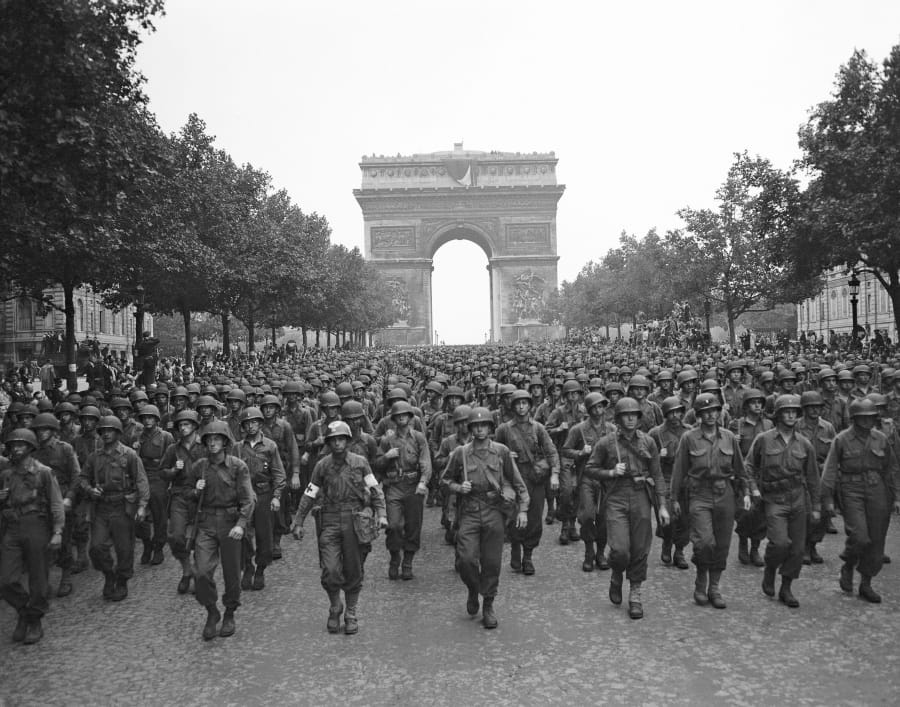PARIS — Seventy-five years ago, they helped free Europe from the Nazis. This weekend, U.S. veterans are back in Paris to celebrate, and commemorate.
Now in their 90s, these men aren’t afraid to cry about what they saw in World War II. And they want everyone to remember what happened back then, so that it doesn’t happen again.
“The veterans, all the veterans of World War II, I think we saved the world,” said Harold Angle, who came to France with the U.S. 28th Infantry Division in 1944, and recounted his experiences to The Associated Press in Paris. “To be under the domination of a dictatorship like the Hitler regime and some of the terrible, terrible things that they did.
“When you talk about taking little kids out on a firing range and shooting them for target practice….” Emotion choked his voice. “I can’t imagine anybody doing things like that. So I think we really did save the world. The guy had to be stopped.”



